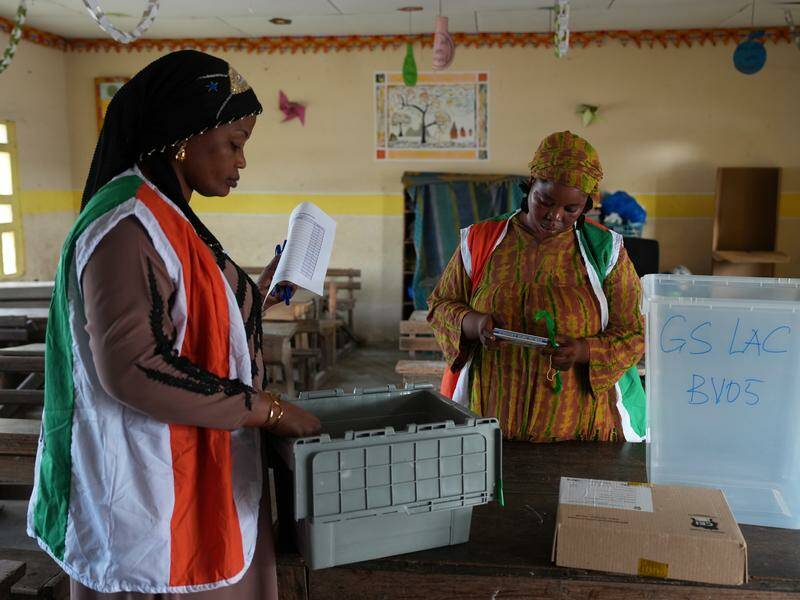
Ivory Coast has commenced voting in its presidential election, with incumbent and leading candidate Alassane Ouattara positioned as a strong favorite. At 83 years old, Ouattara has highlighted nearly 15 years of economic growth and relative stability as key achievements during his tenure. He has suggested that this may be his final campaign, raising questions about the future of leadership in the country.
Ouattara, who previously served as a deputy managing director of the International Monetary Fund, assumed power in 2011 following a civil war that resulted in approximately 3,000 deaths. The conflict was instigated by his predecessor, Laurent Gbagbo, who refused to concede defeat in the 2010 elections. As the polls opened on March 30, 2024, more than 8 million citizens were registered to vote, with polling stations scheduled to close at 18:00 GMT. Provisional results from the election are anticipated within five days, and a runoff will occur if no candidate secures more than 50 percent of the votes.
The political landscape has shifted considerably since the last election, with both Gbagbo and former Credit Suisse CEO Tidjane Thiam deemed ineligible to run this year. Consequently, Ouattara stands out as the clear front-runner, with opposition candidates lacking the support of major political parties. Announcing his candidacy in July, Ouattara described a potential fourth term as a step towards “generational transmission,” acknowledging the challenges of continuing at such a pace in his eighties.
As the polls opened in the Adjame district of the commercial capital, Abidjan, some of Ouattara’s supporters expressed the need for a leadership change. Souamane Cisse, a 44-year-old driver, noted, “He has really changed the image of Ivory Coast, but this should be his last mandate. We need to pass the torch to the new generation.” Similarly, schoolteacher Fatou Fofana, 48, echoed the sentiment, stating that while a transition was necessary, it must occur peacefully.
Despite the country’s progress, including being one of the fastest-growing economies in the region and a leading cocoa producer, not all citizens are satisfied with the current leadership. Landry Ka, a 22-year-old student, expressed frustration over older politicians making decisions for younger generations, voicing support for Simone Gbagbo, the former first lady and Ouattara’s most prominent challenger, who is 76 years old.
The youngest candidate in the race is former commerce minister Jean-Louis Billon, who, at 60, also failed to secure backing from the main opposition party, PDCI, led by Thiam. With the median age of Ivory Coast’s population at just 18, the call for younger leadership is resonating among the electorate.
As the world watches, Ivory Coast’s presidential election not only signifies a critical moment for its political future but also serves as a reflection of the generational shifts occurring within the nation. The outcomes of this election will shape the trajectory of a country that has made significant strides in the past decade but continues to grapple with questions of leadership and representation.






